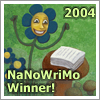Topic: Culture
If you read Sasha Frere-Jones’s
article in the latest
New Yorker about the Sri Lankan rapper M.I.A., you might want to check out
her website, where you can hear some of her music. I have to agree with Frere-Jones that this stuff is more deserving of the term “world music” than the stuff in world music bins at most record stores. We tend to use the term “world music” to mean local music, where the locality is somewhere other than the US or the UK. But I like the idea of world music as the music that’s assembled from global flotsam, that sounds like Bombay or Colombo or Seoul. It’s not the traditional court music of anywhere (though I tend to love that stuff), but rather the street music of everywhere.
In fact, I think this is what Beck’s album Midnite Vultures was about, even if the critics (and possibly even Beck himself) didn’t get it. The album was attacked for being a snide, possibly even racist parody of hip-hop and soul. But it came after Mutations, Beck’s first exploration of music from outside the US, and it also followed a period of extended tours around the world. Vultures is full of lyrics that point beyond American hip-hop to its reprocessing abroad. A sampling:
Perfumed blokes on the Ginza line
She looks so Israeli
Do you wanna ride on the Baltic Sea
Eat at taqueria
Pop lockin’ beats from Korea
The snipers are passed out in the bushes again
I’m glad I got my suit dry-cleaned before the riots started
Those bra burning deportees at the service station
They know that beige is the color of resignation
Ghettos and grey Rivieras
Did you hear those war torn stories
Where the lifeguards slept in the streets
In the jungle lands
With the cold cola cans
You’ll get the keys to the city for free
Bangkok athletes in the biosphere
Arkansas wet dreams
We all disappear
Kremlin mistress
Rings the Buddha chimes
Egyptian bells are ringing
When it’s her birthday
Like a fruit that’s ripe for a pickin’
I wouldn’t do you like that Zankou Chicken
If nothing else, the relentlessness of the international imagery and name-dropping — the quotations come from every song but one — suggests that it’s thematic and important. Yes, “Debra” (the hidden bonus track) is a pretty straight parody of R. Kelly-type love soul, and “Hollywood Freaks” is obviously a parody of gangsta rap. But I’m not sure that these aren’t parodies of Korean and Lithuanian and Israeli copies of American music, rather than just parodies of the American music itself. It’s unfortunate that so many critics, too focused on America’s racial issues, failed to notice that Midnite Vultures is as much a world music album as Tropicalia, and that it is one of the first records by a major American artist to explore the ways in which American, and especially African-American, culture has been apropriated and recontextualized around the world.

